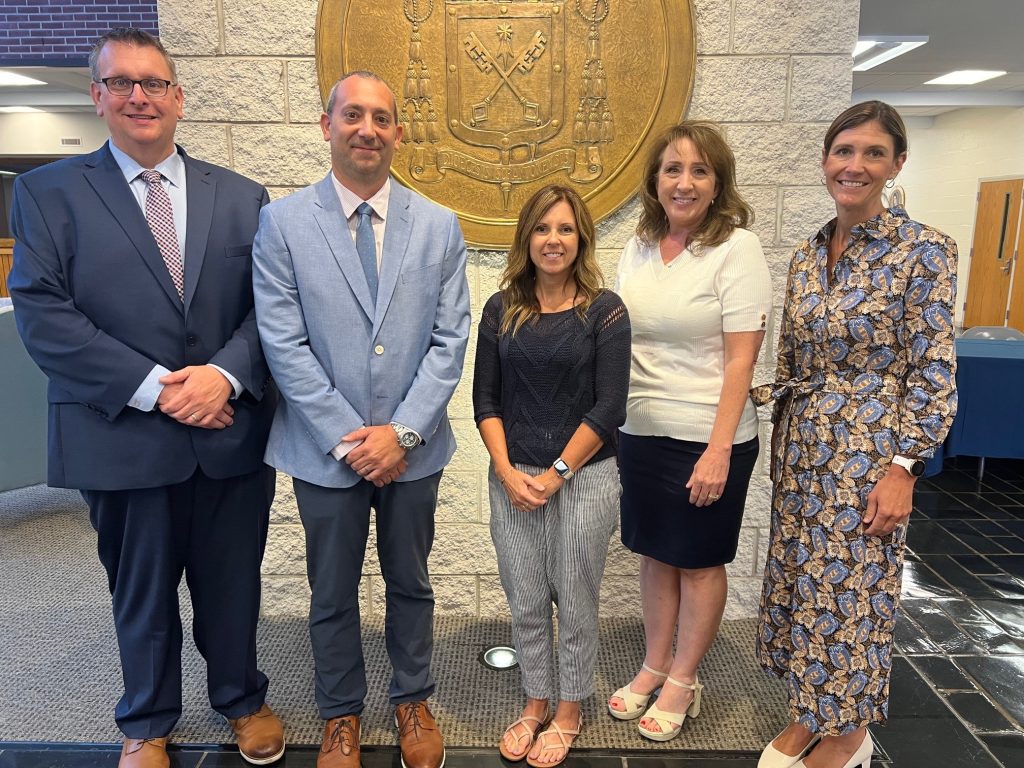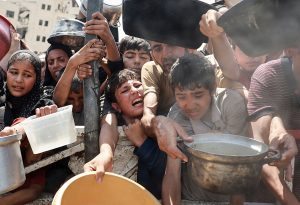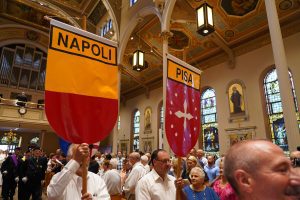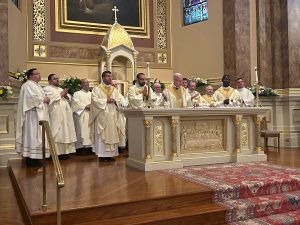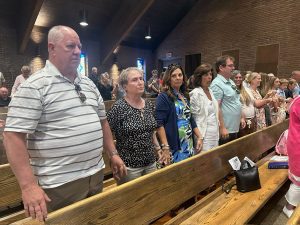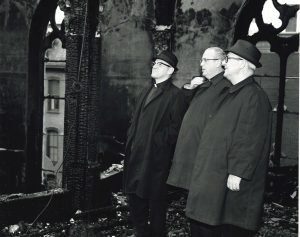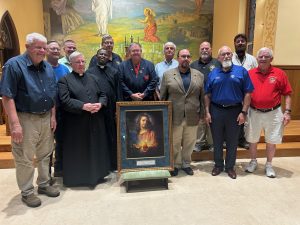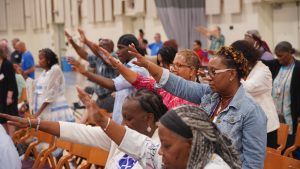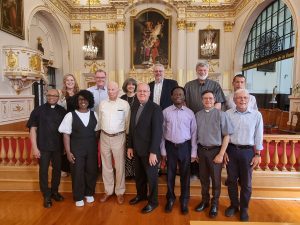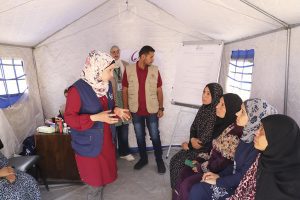SCRANTON – On July 20, parishioners gathered in prayer at Divine Mercy Parish for a special Healing Mass – a liturgy that marked more than just the sacramental anointing of the sick.
It also highlighted a new and growing parish mission, one that seeks to minister to the mind and heart as well as the body.
With the help of a $5,000 Social Justice Grant from the Catholic Ministries Appeal, Divine Mercy Parish has launched a Mental Health Ministry program in its parish, with a full calendar of outreach, education, and healing events planned over the next year.

From grief support groups and suicide prevention efforts to caregiver outreach and addiction awareness, this ministry is answering a need that often goes unspoken but runs deep in every community.
“It has definitely grown organically here at the parish,” Rev. Paul McDonnell, O.S.J., pastor of Divine Mercy Parish, said. “It’s a great opportunity for people that are seeking any type of healing graces – physically, spiritually, emotional, psychologically – for them to be able to come to have that personal encounter with the Lord.”
Father McDonnell presided over the recent Healing Mass, which included the Sacrament of the Anointing of the Sick. Many of those in attendance came forward to be anointed, some for physical ailments, others carrying burdens that are harder to see.
“It was the most beautiful healing Mass I’ve ever been to,” parishioner Patty Grendel said. “From start to finish, everything was just so spiritual, so uplifting!”
Fellow parishioner Sharon Bender agreed.
“It was fabulous. I think it was wonderful, and I hope that the parish has more and more every year,” she said.
The idea for the Mental Health Ministry began to take shape several months ago, inspired in part by Deacon Marty Castaldi and modeled after similar initiatives in other diocesan parishes, including the Cathedral of Saint Peter.
“There is a lot of stigma with mental illness,” Deacon Castaldi explained. “We’d like to bring it to people’s attention through education and awareness.”
According to Deacon Castaldi, roughly one in five people experience some form of mental illness.
“It could be the person sitting right next to you that has emotional or psychological issues going on in their life and bringing it to our parish community is very important,” he added.
The committee behind the ministry has already hosted several events, including a “Blue Christmas” prayer service last winter for those dealing with grief or depression during the holidays. This year, they plan to expand their efforts dramatically.
The $5,000 Social Justice Grant, made possible through generous donations to the Catholic Ministries Appeal, is helping to bring that vision to life.
“Our Diocese has always been very supportive of any different type of ministry or different type of program on the parish level, and I think that really resonates with the people who are so generous with the Appeal each year,” Father McDonnell said.
“That money is going to go a long way. We have a very aggressive agenda this year and I think the money will be helpful to a lot of people,” Deacon Castaldi added.
And that is the heart of it.
Parish leaders know they will not be able to solve every problem – but can respond with compassion and the healing presence of Christ.
For longtime parishioner Mary Joan Gibbs, the Healing Mass held in July was deeply personal.
She came seeking prayer for leg pain but also carried the memory of losing her husband years ago while still raising young children.
“Christ took care of it,” Gibbs said.
Reflecting on the Mass itself, she added, “I loved it. It gives you peace and security.”
“This ministry is essential,” Deacon Castaldi emphasized. “When you have God in your life, you’re not facing it alone.”
For more information on upcoming events that the Divine Mercy Mental Health Ministry is planning, visit their parish website or call the parish office at (570) 344-1724.

